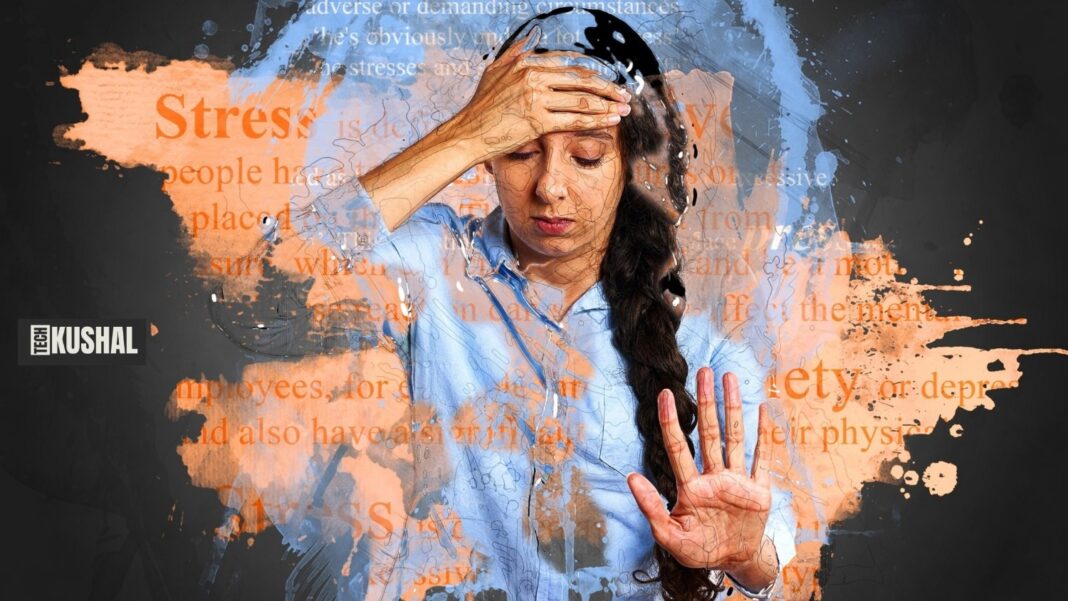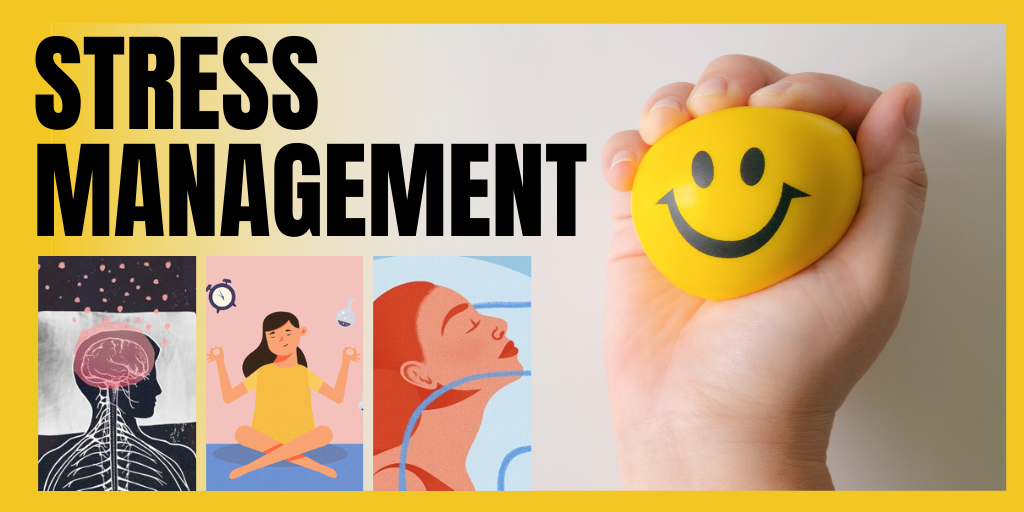
Overcoming Anxiety in 2024, Anxiety has become a common mental health challenge in today’s fast-paced world. The pressures of modern life, coupled with unprecedented global events, have made managing anxiety more crucial than ever. In 2024, overcoming anxiety requires a combination of proven strategies, mindful practices, and a commitment to personal well-being. This article provides a comprehensive guide to effectively manage and reduce anxiety, helping you regain control of your life.
Read More: Overcoming Anxiety and Panic Attacks in 2024 Strategies for Mental Well-being
Understanding Anxiety: What It Is and How It Affects You

Anxiety is a natural response to stress, characterized by feelings of fear, worry, and unease. While occasional anxiety is normal, chronic anxiety can interfere with daily life, affecting your mental, emotional, and physical health. The symptoms of anxiety can range from mild to severe and may include restlessness, rapid heartbeat, excessive sweating, and difficulty concentrating.
In 2024, understanding the root causes of anxiety is essential. Factors such as genetic predisposition, environmental stressors, and lifestyle choices all play a role in the development of anxiety disorders. By identifying the specific triggers of your anxiety, you can take targeted steps to address and manage it effectively.
The Importance of Early Intervention

Early intervention is key to overcoming anxiety. The longer anxiety is left unaddressed, the more deeply it can become entrenched in your daily life. If you recognize the signs of anxiety, it’s important to seek help sooner rather than later. Cognitive-behavioral therapy (CBT) is one of the most effective forms of treatment for anxiety, helping individuals identify and change negative thought patterns.
In 2024, there is a growing recognition of the importance of mental health care. Access to therapy, support groups, and online resources has improved, making it easier for people to seek help. Don’t wait until anxiety becomes overwhelming—early intervention can prevent the escalation of symptoms and improve your quality of life.
Practical Strategies for Managing Anxiety in 2024
Overcoming anxiety requires a multifaceted approach that includes lifestyle changes, mental health care, and self-help strategies. Here are some of the most effective methods to manage anxiety in 2024:
1. Practice Mindfulness and Meditation
Mindfulness is a powerful tool for managing anxiety. It involves staying present in the moment and observing your thoughts and feelings without judgment. Regular mindfulness practice can help reduce anxiety by calming the mind and promoting relaxation.
Meditation complements mindfulness by providing a structured way to focus your thoughts and achieve a state of calm. In 2024, there are numerous apps and online resources available that guide you through mindfulness and meditation practices, making it easier than ever to incorporate these techniques into your daily routine.
2. Incorporate Regular Physical Activity
Physical activity is a natural anxiety reliever. Exercise releases endorphins, which are chemicals in the brain that act as natural painkillers and mood elevators. In 2024, finding time for regular exercise is crucial for managing anxiety.
Whether it’s a brisk walk, yoga, or a more intense workout, exercise helps to reduce stress hormones and improve your overall sense of well-being. Aim for at least 30 minutes of physical activity most days of the week to experience the benefits.
3. Maintain a Healthy Diet
What you eat can have a significant impact on your mental health. A diet rich in fruits, vegetables, whole grains, and lean proteins can help stabilize your mood and reduce anxiety.
In 2024, there is a greater emphasis on the connection between nutrition and mental health. Avoiding caffeine, sugar, and processed foods can help reduce anxiety symptoms. Incorporate foods rich in omega-3 fatty acids, such as salmon and walnuts, which have been shown to have a positive effect on mental health.
4. Prioritize Sleep
Sleep and anxiety are closely linked. Poor sleep can exacerbate anxiety, and anxiety can make it difficult to sleep. In 2024, improving your sleep hygiene is a critical step in managing anxiety.
Establish a consistent sleep routine by going to bed and waking up at the same time every day. Create a calming bedtime routine that includes activities like reading or taking a warm bath. Avoid screens before bed, as the blue light emitted by phones and computers can interfere with sleep.
5. Challenge Negative Thoughts
Anxiety often stems from negative thought patterns. In 2024, cognitive-behavioral techniques are widely used to help individuals challenge and reframe these thoughts.
When you notice negative thoughts, take a moment to question their validity. Are they based on facts, or are they distortions of reality? By replacing negative thoughts with more balanced ones, you can reduce anxiety and improve your overall outlook on life.
6. Seek Professional Help When Needed
Sometimes, self-help strategies are not enough to manage anxiety. In 2024, there is no stigma in seeking professional help for anxiety. Therapists, counselors, and psychiatrists are equipped to provide the support you need to overcome anxiety.
Cognitive-behavioral therapy (CBT), exposure therapy, and medication are all effective treatments for anxiety. Don’t hesitate to reach out to a mental health professional if your anxiety is interfering with your daily life.
Embracing a Balanced Lifestyle

In 2024, overcoming anxiety is not just about managing symptoms; it’s about creating a balanced and fulfilling life. By embracing a holistic approach to mental health, you can reduce anxiety and build resilience against future stressors.
Social Connections: Building strong social connections is crucial for mental health. Surround yourself with supportive friends and family members who can provide emotional support during difficult times.
Stress Management: Learning to manage stress is essential for overcoming anxiety. Techniques such as deep breathing, progressive muscle relaxation, and time management can help you cope with stress more effectively.
Self-Care: Prioritizing self-care is key to maintaining mental health. Set aside time each day for activities that bring you joy and relaxation, whether it’s reading, gardening, or spending time with loved ones.
Case Study: Overcoming Anxiety in 2024 – A Comprehensive Approach
Background
In early 2024, Maria, a 34-year-old marketing executive, began experiencing overwhelming anxiety due to the increasing demands of her job. Her role required her to manage multiple high-pressure projects, coordinate with international teams across different time zones, and continuously stay on top of industry trends. These responsibilities, combined with the stress of balancing her personal life, led to symptoms of chronic anxiety.
Maria’s anxiety manifested as constant worry, difficulty concentrating, irritability, and frequent panic attacks. Despite her best efforts to manage these symptoms on her own, Maria found that her anxiety was beginning to negatively impact her work performance and personal relationships. Recognizing the need for a change, she decided to seek help and explore a holistic approach to managing her anxiety.
Step 1: Seeking Professional Help
Maria’s first step was to consult with a mental health professional. She found a therapist who specialized in cognitive-behavioral therapy (CBT), a proven method for treating anxiety. During her sessions, Maria learned to identify the negative thought patterns that were fueling her anxiety and began working on strategies to challenge and reframe these thoughts.
For example, Maria often worried about making mistakes at work and feared that even small errors would lead to significant consequences. Through CBT, she learned to recognize this as a cognitive distortion and started practicing more balanced thinking. Instead of assuming the worst, she reminded herself that mistakes are a normal part of the learning process and that she was capable of handling challenges effectively.
Step 2: Incorporating Mindfulness and Meditation
At her therapist’s recommendation, Maria began incorporating mindfulness and meditation into her daily routine. She started with just five minutes of meditation each morning, focusing on her breath and practicing letting go of intrusive thoughts. Over time, she extended her meditation sessions and found that this practice helped her start the day with a calmer, more focused mindset.
Maria also integrated mindfulness into her workday. Whenever she felt overwhelmed, she took a few minutes to practice deep breathing and bring her attention back to the present moment. This simple practice made a significant difference in how she responded to stressful situations, allowing her to approach challenges with greater clarity and composure.
Step 3: Making Lifestyle Changes
Recognizing the importance of physical health in managing anxiety, Maria made several lifestyle changes. She began prioritizing regular physical activity, committing to a mix of yoga and brisk walking five days a week. This exercise routine not only improved her physical fitness but also helped to regulate her mood and reduce the physical symptoms of anxiety, such as tension and restlessness.
Maria also made changes to her diet. She cut back on caffeine, which had been contributing to her feelings of jitteriness and increased anxiety. Instead, she focused on a balanced diet rich in fruits, vegetables, whole grains, and lean proteins. She also incorporated foods high in omega-3 fatty acids, such as salmon and flaxseeds, after learning about their potential benefits for mental health.
Sleep was another area Maria addressed. Understanding the connection between sleep and anxiety, she established a consistent sleep routine. She went to bed and woke up at the same time each day, created a relaxing bedtime routine, and limited screen time before bed. As a result, Maria noticed a significant improvement in her sleep quality, which in turn helped to reduce her anxiety levels.
Step 4: Building a Support System
Maria knew that social support was crucial for managing anxiety, so she made an effort to strengthen her relationships with friends and family. She began scheduling regular catch-ups with close friends and reached out to a few colleagues she trusted to share her experiences. These conversations provided her with emotional support and a sense of connection, which was especially important during challenging times.
Maria also joined a local support group for individuals dealing with anxiety. This group offered a safe space to share her experiences, learn from others, and gain new insights into managing anxiety. The support group became an important part of her overall strategy for overcoming anxiety, providing her with both practical advice and emotional encouragement.
Step 5: Ongoing Maintenance and Reflection
Over the course of several months, Maria noticed a significant reduction in her anxiety symptoms. While she still experienced moments of stress, she now had the tools and strategies to manage these feelings effectively. Maria continued her therapy sessions, but on a less frequent basis, as she felt more confident in her ability to handle anxiety independently.
Maria also made it a point to regularly reflect on her progress. She kept a journal where she recorded her thoughts, feelings, and the techniques that had worked best for her. This reflection helped her stay mindful of her mental health and allowed her to adjust her strategies as needed.
Outcomes
By mid-2024, Maria had successfully managed to overcome the worst of her anxiety. She felt more in control of her thoughts and emotions and was able to approach both her work and personal life with renewed confidence. Her performance at work improved, and she found herself enjoying her job more, free from the constant worry that had previously overshadowed her success.
Maria’s personal relationships also benefited from her reduced anxiety. She was more present and engaged with her family and friends, and her overall sense of well-being improved. The combination of professional help, lifestyle changes, and a strong support system had enabled Maria to regain control of her life and thrive in the face of challenges.
Conclusion: Taking Control of Your Anxiety in 2024
Overcoming anxiety in 2024 requires a proactive approach. By understanding the root causes of anxiety, seeking early intervention, and incorporating practical strategies into your daily life, you can regain control and lead a more peaceful, fulfilling life. Remember, you are not alone in your journey—resources and support are available to help you every step of the way.
Maria’s case is a powerful example of how a comprehensive approach to managing anxiety can lead to significant improvements in mental health and overall well-being. By seeking professional help, incorporating mindfulness, making lifestyle changes, building a support system, and maintaining an ongoing commitment to self-care, Maria was able to overcome anxiety and achieve a more balanced, fulfilling life.
FAQs: Overcoming Anxiety in 2024
1. What are the most common symptoms of anxiety?
Anxiety symptoms vary from person to person, but common signs include:
- Persistent worry or fear
- Restlessness or feeling on edge
- Difficulty concentrating
- Rapid heartbeat
- Shortness of breath
- Sweating and trembling
- Irritability
- Trouble sleeping
- Gastrointestinal issues
If you experience these symptoms regularly and they interfere with your daily life, it may be time to seek help.
2. How can mindfulness help with anxiety?
Mindfulness involves staying present in the moment and observing your thoughts without judgment. It helps reduce anxiety by calming the mind and allowing you to focus on the present rather than worrying about the future. Regular mindfulness practice can lower stress levels and improve overall mental well-being.
3. What is Cognitive-Behavioral Therapy (CBT) and how does it work for anxiety?
Cognitive-Behavioral Therapy (CBT) is a type of psychotherapy that focuses on identifying and changing negative thought patterns that contribute to anxiety. Through CBT, you learn to challenge irrational fears and replace them with more balanced, realistic thoughts. This therapy is highly effective in reducing anxiety symptoms and providing long-term coping strategies.
4. How important is exercise in managing anxiety?
Exercise plays a crucial role in managing anxiety. Physical activity releases endorphins, which are natural mood lifters. Regular exercise can reduce stress hormones, improve sleep, and enhance overall well-being, making it an effective tool for reducing anxiety.
5. What dietary changes can help reduce anxiety?
A balanced diet can have a significant impact on anxiety levels. To help manage anxiety, focus on:
- Reducing caffeine and sugar intake, as they can increase anxiety.
- Eating a variety of fruits, vegetables, whole grains, and lean proteins.
- Including foods rich in omega-3 fatty acids, such as salmon and walnuts, which support brain health.
- Staying hydrated and avoiding processed foods.
6. How does sleep affect anxiety?
Sleep and anxiety are closely linked. Poor sleep can exacerbate anxiety, and anxiety can make it difficult to sleep. Improving sleep hygiene—such as establishing a consistent sleep schedule, creating a relaxing bedtime routine, and limiting screen time before bed—can help reduce anxiety and improve overall mental health.
7. When should I seek professional help for anxiety?
You should consider seeking professional help if:
- Your anxiety is persistent and interferes with your daily life.
- Self-help strategies are not effective in managing your symptoms.
- You experience panic attacks or severe anxiety that impacts your ability to function.
Mental health professionals, such as therapists and psychiatrists, can provide effective treatment options, including Cognitive-Behavioral Therapy (CBT), exposure therapy, and medication.
8. Can anxiety be completely cured?
While anxiety may not be completely “cured,” it can be effectively managed with the right strategies and support. Many people with anxiety learn to live fulfilling lives by using tools like therapy, mindfulness, lifestyle changes, and medication when necessary. The goal is to reduce the impact of anxiety on your life and develop coping mechanisms that help you navigate challenges.
9. How can I support a loved one who is struggling with anxiety?
Supporting someone with anxiety involves:
- Listening without judgment and offering emotional support.
- Encouraging them to seek professional help if needed.
- Being patient and understanding that anxiety is a real and challenging condition.
- Helping them engage in activities that reduce anxiety, such as exercise, mindfulness, or hobbies.
- Avoiding pressure or criticism, which can increase their anxiety.
10. What role does a support system play in overcoming anxiety?
A strong support system is essential in managing anxiety. Friends, family, and support groups provide emotional encouragement, practical advice, and a sense of connection. Having people to talk to and rely on can reduce feelings of isolation and help individuals feel more confident in managing their anxiety.



